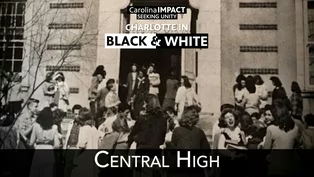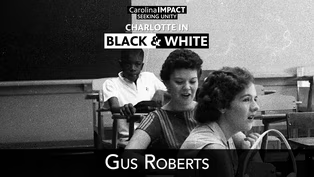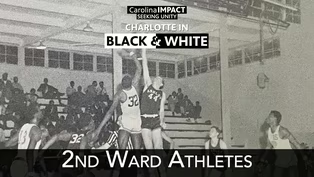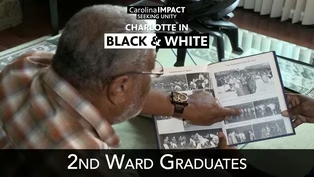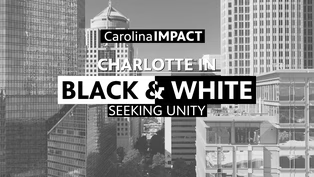
Second Ward Brooklyn Experience | Charlotte In Black & White
Clip: Season 11 Episode 1130 | 5m 34sVideo has Closed Captions
Telling the story about the connection between Second Ward Highschool and the historic Bro
It was the epitome of the neighborhood school—its name: Second Ward High School. It’s mission: to educate the African American children of Charlotte’s Brooklyn community during the era of segregation. What happened is a story you should know—listen, as Beatrice Thompson takes us on this educational journey.
Problems playing video? | Closed Captioning Feedback
Problems playing video? | Closed Captioning Feedback
Carolina Impact is a local public television program presented by PBS Charlotte

Second Ward Brooklyn Experience | Charlotte In Black & White
Clip: Season 11 Episode 1130 | 5m 34sVideo has Closed Captions
It was the epitome of the neighborhood school—its name: Second Ward High School. It’s mission: to educate the African American children of Charlotte’s Brooklyn community during the era of segregation. What happened is a story you should know—listen, as Beatrice Thompson takes us on this educational journey.
Problems playing video? | Closed Captioning Feedback
How to Watch Carolina Impact
Carolina Impact is available to stream on pbs.org and the free PBS App, available on iPhone, Apple TV, Android TV, Android smartphones, Amazon Fire TV, Amazon Fire Tablet, Roku, Samsung Smart TV, and Vizio.
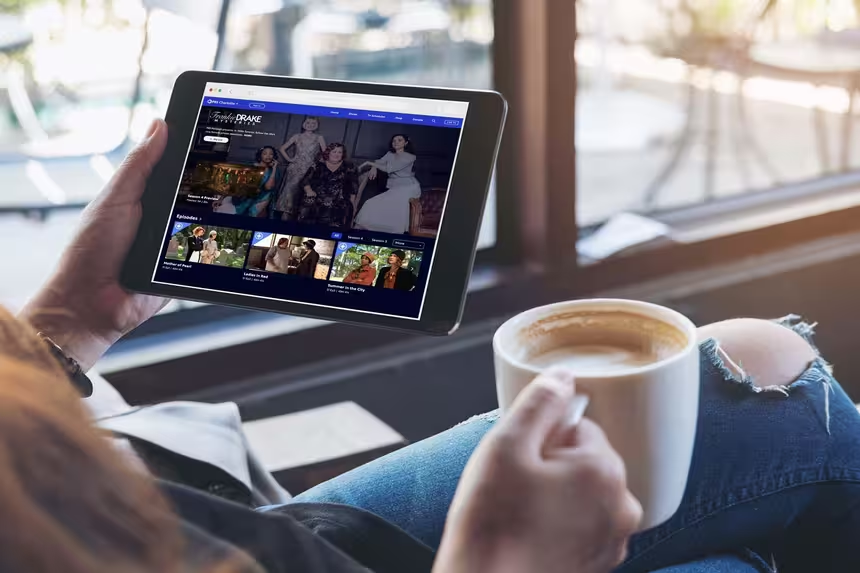
Introducing PBS Charlotte Passport
Now you can stream more of your favorite PBS shows including Masterpiece, NOVA, Nature, Great British Baking Show and many more — online and in the PBS Video app.Providing Support for PBS.org
Learn Moreabout PBS online sponsorship- That sense of belonging, that sense of humanness that we had as one, was always the Brooklyn, really Second Ward story.
- [Bea] You may have heard of the storied Brooklyn community in the heart of uptown Charlotte and the high school that was its heartbeat, that would be Second Ward.
- It's a school that was very well needed, and it's very well missed.
I tell you the learning at that school, it was phenomenal.
It didn't get any better than that.
- [Bea] Romanticizing the past?
Not for these former students and residents of Second Ward and the Brooklyn community.
- [Ted] This is me.
This is Ted Kennedy.
- [Bea] For their school years happened during a segregated time in America, and it was the community and the school, that sheltered and nurtured young black children.
- When I went to South (indistinct) I was always told I was not gonna be able to go to college and I should not even be in any of the academic programs.
This was from the counselor.
(upbeat music) - [Bea] Yet at Second Ward, her teachers immediately dispelled that idea.
- But when I got to Second Ward, they said, who told you that?
(laughs) And so that's when I changed everything and I went to college.
(laughs) - [Bea] And it was that type of caring in the schoolhouse, that carried over into the community.
- Whatever we did, the community will always join in.
When we had fundraisers, they would always participate with us.
So there are a lot of things, that allowed the community to connect with us, on a social aspect and business aspect.
- [Bea] From yearbook ads by businesses to jobs for students.
Ask anyone today and they can call off those businesses and their locations.
- We would stop at McKenzie's Shoe Shop.
That's where you drop your shoes off.
The barbershop was there, which was the Tate family, and then the pharmacy.
Philip's pharmacy was right there.
You'd stop there and you could go in there for that.
And of course the movie theater was there.
- My father had his business at the corner of (indistinct).
Also, he had an auto mechanic shop, so he was the neighborhood mechanic.
- [Bea] And in the neighborhoods of Brooklyn, Cherry and First Ward, children learn from the cross section of families in their community.
- Within a neighborhood, you could have a school teacher at one house, you could have a minister at another, and then you could have someone with no degree at all, all living right there.
- [Bea] Yet it always comes back to Second Ward High School.
- [Eloise] It's so sweet.
[Voice Over] And it's pivotal impact in their lives.
- They were still like, (indistinct) you can do it.
Come on now.
Go back out there.
(laughs) We are not giving up on you.
All the people and all the young ladies, that were just aspiring to be better and wanting to do better, 'cause that's what I wanted to do.
I wanted to do better and be better than what I had ever thought that I could be.
- This is such a good experience.
It is one of those things that you just can't duplicate.
You have to really live it to understand what good it was.
- We were always taught whatever happens to you, whatever goes on wherever you are, if somebody says Second Ward, stop what you're doing and go and help them.
- [Bea] Yet, within a few years, the vibrant community of Brooklyn and its storied Second Ward High School, would both meet their demise through a federal program termed urban renewal.
- And the whole community was gone.
It still hurts.
It's one of those things you have to get used to, or get beyond.
But when you think about it, it's still painful.
- The other loss, I think, was in the explanations given to the persons who lost their homes and who had to move and who had to do something like that.
Promises made about, I believe when Second Ward was torn down, "We're going to build a new school, don't worry about it."
Well, that never happened.
- They made a lot of promises during graduation, that they was gonna build another school, but I didn't feel like there would be another school built because of the location where it was.
- [Bea] Today, much of the memorabilia of those days, is stored at the Second Ward Alumni house, where many reminisce about their school and community.
- We all did well survive, which is good and we carry on that kind of importance of that legacy.
- [Bea] So how did they fare in life?
The country girl who moved to the city, did go on to college, Wilberforce in Ohio, and more than 50 years later, she still married to her Second Ward sweetheart, who was an athlete.
Natalie Kennedy Beard went to Spelman and became a Professor of Education at Harris-Stowe State University in St. Louis.
- [Jacqueline] Right here.
- [Bea] Jacqueline Fullman Gunter went to North Carolina A&T became a teacher and taught at a school, with some of her former Second Ward teachers.
And Ted Kennedy went on to become a CMPD officer and a detective.
For many of the former students of Second Ward, the nurturing allowed them to spread their wings in life, while never forgetting their Second Ward roots.
Central High | Charlotte In Black & White
Video has Closed Captions
Clip: S11 Ep1130 | 5m 34s | A century of school history at two former high schools brings reflection. (5m 34s)
Gus Roberts | Charlotte In Black & White
Video has Closed Captions
Clip: S11 Ep1130 | 4m 50s | "They had to tough it out. And they made history." Desegregation at Central High. (4m 50s)
Second Ward Athletes | Charlotte In Black & White
Video has Closed Captions
Clip: S11 Ep1130 | 4m 41s | A look back at the Second Ward Tigers athletes success on and off the courts and fields. (4m 41s)
Second Ward Graduates | Charlotte In Black & White
Video has Closed Captions
Clip: S11 Ep1130 | 5m 8s | Mayors, TV hall-of-famers, world record holders - they were all students at Central High. (5m 8s)
Seeking Unity: Charlotte In Black & White
Preview: S11 Ep1130 | 30s | Once segregated by race, a community comes together to learn from it's fractured past. (30s)
Providing Support for PBS.org
Learn Moreabout PBS online sponsorship
- News and Public Affairs

Top journalists deliver compelling original analysis of the hour's headlines.

- News and Public Affairs

FRONTLINE is investigative journalism that questions, explains and changes our world.












Support for PBS provided by:
Carolina Impact is a local public television program presented by PBS Charlotte
